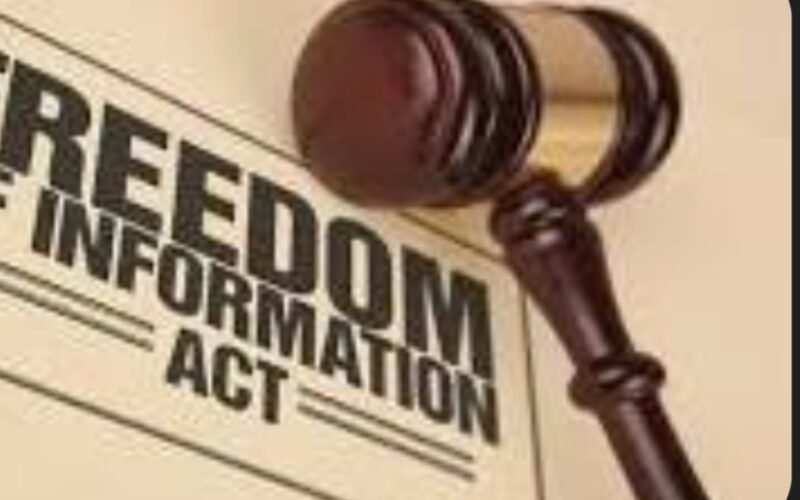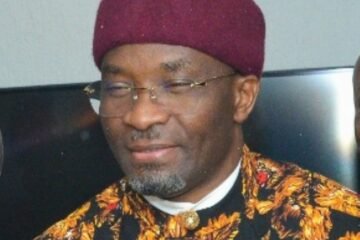VEILED TRUTHS AND CONFLICTING VOWS: The Paradox Of Nigeria’s Oath Of Secrecy And FOI
By Okoye, Chuka Peter
In the ever-enigmatic theatre of Nigerian governance, two legal scripts often seem to run simultaneously, sometimes in harmony, but more often in discord. On one hand, we have the solemnly recited Oath of Secrecy binding civil servants to confidentiality; on the other, the audacious Freedom of Information Act, 2011 (FOIA) empowering citizens to demand transparency. And thus, in this grand production of constitutional democracy, we are left to ask: can you swear to hide, and swear to reveal, under the same Constitution?
Welcome to the paradox.
THE OATH OF SECRECY: A Vow Cloaked in Shadows
Let’s begin with Act One. The Oath of Secrecy is a creation of the Official Secrets Act, Cap. O3, LFN 2004, which mandates civil and public officers to “not disclose or make known any matter that comes to their knowledge in the course of their official duties…”. This oath is not ceremonial; it is a legal quagmire. Section 1(1) of the Act makes it an offence to even “obtain, record, or communicate” classified information, with punishments ranging from fines to imprisonment.
In effect, civil servants are cast in the role of guardians of state secrets, tasked with keeping Pandora’s box firmly shut, even if what’s inside is merely the procurement record of 200 missing streetlights.
FOIA: The People’s Legal Torchlight
Enter Act Two: the Freedom of Information Act (FOIA), 2011, Nigeria’s legislative rhyme to transparency and open governance. This Act, especially in Sections 1, 2, and 4, confers on every Nigerian the right to request and receive information from public institutions without having to prove any specific interest. The FOIA frowns upon secrecy unless such secrecy is legally justified by national security, personal privacy, or privileged communications.
FOIA seeks to drag dusty government files out from dark corners into the public square. But unfortunately, what happens when a civil servant receives a request and says, “I took an oath to say nothing about that”?
When Legal Doctrines Collide
The conflict becomes sharper when you consider that the Oath of Secrecy is contractual, while FOIA rights are constitutional adjuncts tied to Section 39(1) of the 1999 Constitution (as amended), which guarantees the right to receive and convey information. In the hierarchy of laws, constitutional rights should tower over statutory oaths, but try telling that to a clerk in the Ministry of Agriculture who is more afraid of his boss than of Section 39.
Indeed, FOIA Section 1(2) affirms that any law that “requires an applicant to demonstrate any specific interest or motive”, or imposes “unwarranted restrictions” on access to information, is inoperative to the extent of its inconsistency.
Legal scholars such as Prof. Ayo Atsenuwa have noted that while the Oath of Secrecy serves legitimate interests, such as protecting classified intelligence, it should never become a convenient shield for opacity in public procurement, budgeting, or expenditure. But in practice, the line between “classified” and “inconvenient truth” is often blurred beyond recognition.
Of Files, Fear, and Finger-Pointing
One cannot but laugh (or cry) at the Kafkaesque bureaucracy that Nigerian citizens encounter when they invoke FOIA rights. Civil servants have been known to respond with:
“Oga, we don’t give out that kind of document here.”
Or, more comically: “Which law do you say you are quoting? We only obey the Permanent Secretary.”
These responses point not just to a misunderstanding of FOIA, but to a culture where the Oath of Secrecy is wielded like a security pass to impunity.
In 2022, the Public and Private Development Centre (PPDC) ranked several ministries and parastatals low on FOIA compliance. The usual excuse? “National interest” or “confidentiality”, terms never fully explained, much less legally defined.
Bridging the Divide: What Must Be Done?
This paradox must be addressed with clarity, and not just at conferences or symposia attended by those who already understand the problem. Here are some actionable steps:
- Clear Statutory Guidance: The Federal Government must issue binding FOIA compliance regulations that explicitly guide public servants on what constitutes justifiable secrecy versus unjustifiable concealment.
- Judicial Clarification: Courts must continue to interpret FOIA expansively, as seen in Edetaen Ojo v. Minister of Information (2017) where the Federal High Court emphasized that public institutions must provide information unless it is expressly exempted by law.
- Whistleblower Protections: Civil servants should not be made to choose between their job security and their conscience. Strengthening whistleblower laws, such as those under the Public Interest Disclosure Bill, will embolden patriotic disclosure.
- Mass FOIA Literacy: Civil society must take the FOIA from law books to roadside mechanics, market women, and local journalists. If people don’t know their rights, they will continue to whisper in a system built to silence them.
The Case for Repealing the Oath of Secrecy
However, in the final analysis, the most radical step that Nigeria must consider, for the sake of good governance and transparency, is the repeal of the Oath of Secrecy itself. This oath, designed in the colonial era, has long outlived its relevance in a modern, democratic society where access to information is foundational to accountability.
By repealing the Official Secrets Act and its accompanying oath, the Nigerian government would take a bold step towards making civil servants true stewards of public interest rather than gatekeepers of opaque bureaucracy. This move would align with the principles of transparency set forth by the FOIA and would signal a genuine commitment to fostering democratic values and good governance.
Government, we urge you to release us from this oath of silence!
CONCLUSION
A House Divided
In the end, it is absurd to expect a civil servant to obey the FOIA with one hand and honour a code of silence with the other. It is like asking a man to drive and brake at the same time because an accident will be inevitable. The Nigerian state must choose to: either promote transparency or continue veiling truth in procedural fog.
Until then, the Nigerian citizen remains stuck between veiled truths and conflicting vows, where freedom is promised, but silence is enforced.
Let the sunlight in.
By Okoye, Chuka Peter.
Centre for Human Rights Advocacy & Wholesome Society – CEHRAWS





